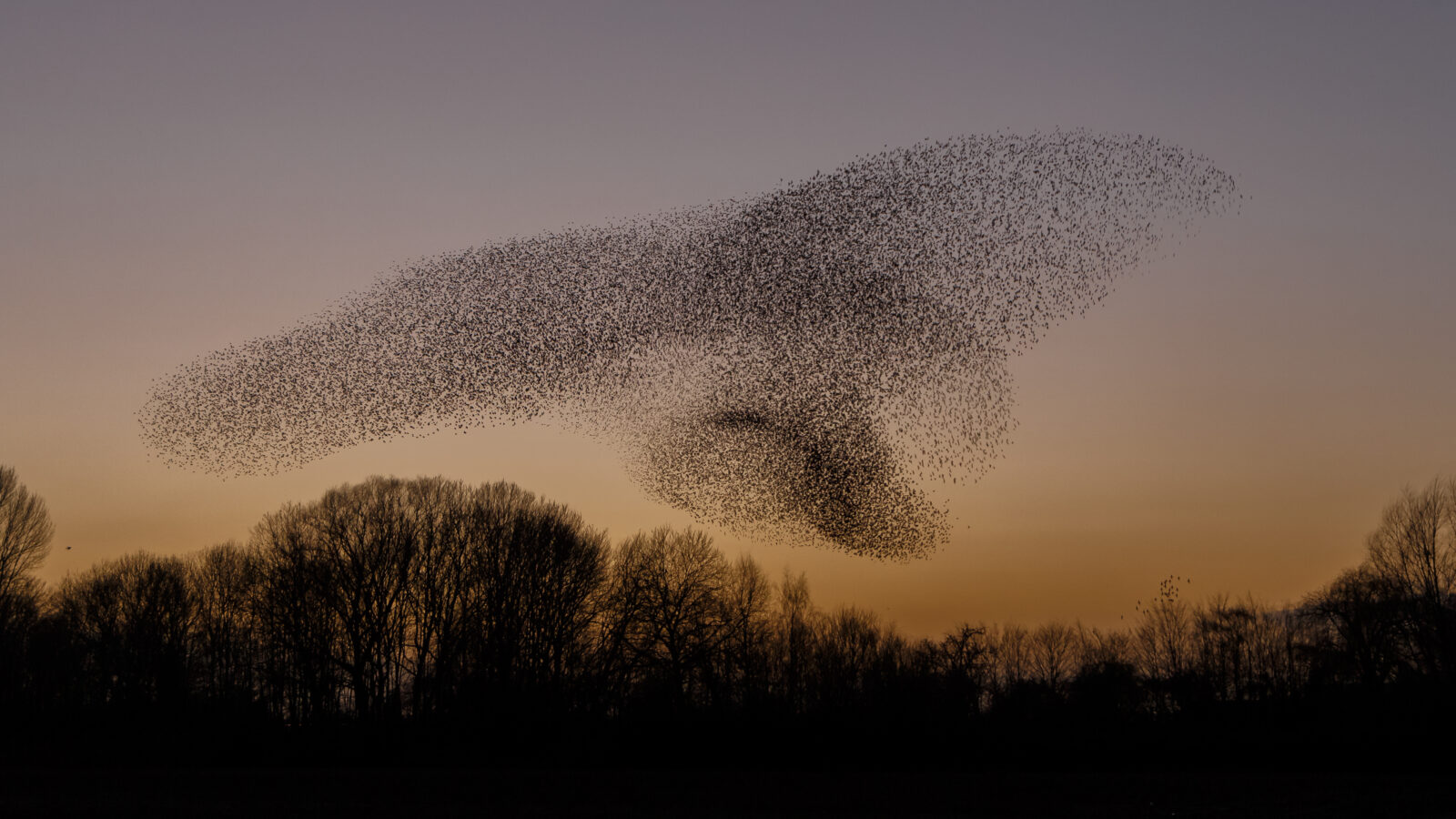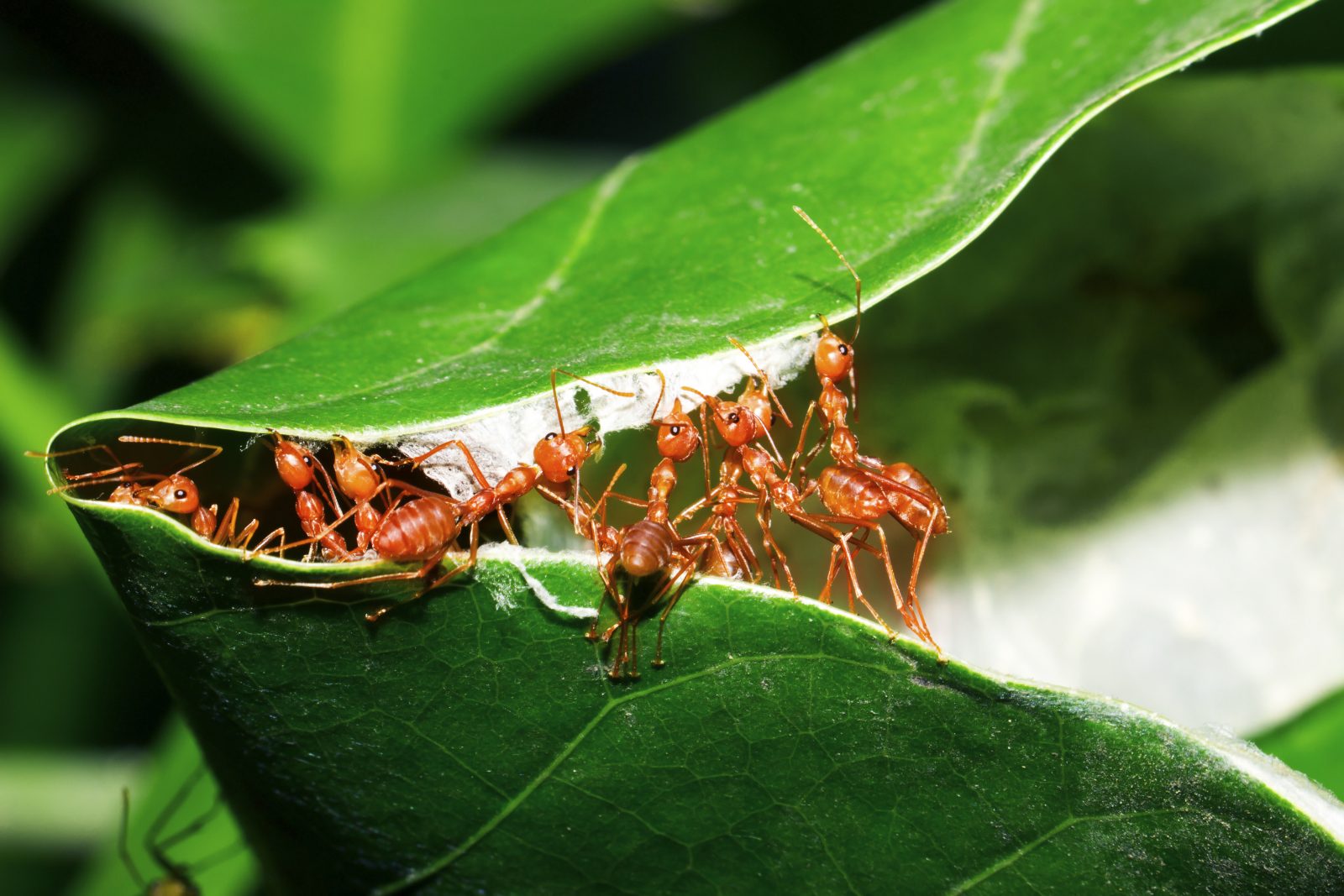


Mama Bear Apologetics Takes on Atheist Richard Dawkins
Today’s ID the Future puts atheist Richard Dawkins’s book Outgrowing God under the microscope and reveals multiple ways his argument smashes up against contrary scientific evidence. Walking us through the critique are author and Mama Bear Apologetics founder Hillary Morgan Ferrer and her co-host, Amy Davison. Dawkins invokes the beautiful order evident in the murmuration of bird flocks as evidence that complexity can evolve from simple algorithmic rules. But Ferrer explains why the phenomenon of bird murmuration doesn’t even begin to approach what we find when sophisticated engineering order emerges in the growth of embryos. Ferrer also considers the challenges of re-engineering sperm thermoregulation to move from how it works in marine life to how it works in land animals. Read More ›

Hank Hanegraaff and Animal Algorithms Author Eric Cassell, Pt. 2
On today’s ID the Future, radio host Hank Hanegraaff continues his conversation with Animal Algorithms author Eric Cassell. Here they look at more insects with strikingly sophisticated innate behavior, suggesting intricate algorithms encoded into their brains from birth, all of which cannot be effectively explained by reference to Darwinian evolution. Cassell and Hanegraaff touch on wasp martial arts; termite altruism and termite architectural skills, including a cooling system that has inspired a human design; interdependent social caste systems that enhance fitness; and spiderweb architecture and the extraordinary properties of spider silk, including the different kinds of silk and the spider’s ability to employ different types precisely tailored for different needs. Cassell looks at evolutionary explanations for these innate abilities that Read More ›

Hank Hanegraaff Interviews Animal Algorithms Author Eric Cassell, Pt. 1
On this ID the Future radio host Hank Hanegraaff interviews Animal Algorithms author Eric Cassell about insects and other small-brained animals with innate behaviors of astonishing sophistication — desert ants, leafcutter ants, honey bees, spiders, monarch butterflies, and many more. These appear to be hard-wired from birth with complex algorithms coded into their neural networks, and some of the algorithms seem to involve complex mathematics. Also mysterious: many of these innate abilities are do or die. So how could they have blindly evolved one small Darwinian step at a time? Also, how would genetic mutations generate the ability to make navigational calculations (as in the case of some birds) that for humans require spherical geometry? Listen in to learn more Read More ›

Amazing Insect Colonies vs. Evolution
On today’s ID the Future, Animal Algorithms author Eric Cassell delves into another fascinating portion of his new book, the programmed social behaviors of colony insects and the challenge these instinctive behaviors pose for modern evolutionary theory. Cassell and host Robert J. Marks discuss the complex caste system of these colonies, the impressive signaling systems they use to communicate, and how technologists study these tiny-brained creatures to learn tricks for developing and improving drone swarm technology. How could a mindless evolutionary process have evolved these sophisticated colonies, where various castes appear essential to the functioning and survival of the colony, and possess their division-of-labor skills instinctively? Some colony members also behave altruistically, a fact that Charles Darwin himself conceded posed Read More ›

Michael Egnor on Atheist Jerry Coyne’s Divine Sense Organ
On this episode of ID the Future, Andrew McDiarmid brings listeners a pair of Michael Egnor responses to atheist biologist Jerry Coyne, who recently argued that if God existed, we’d have sense organs to detect Him. We do have that organ, says Egnor. It’s reason, the means by which we can infer the reality of a designing mind behind nature.
Read More ›